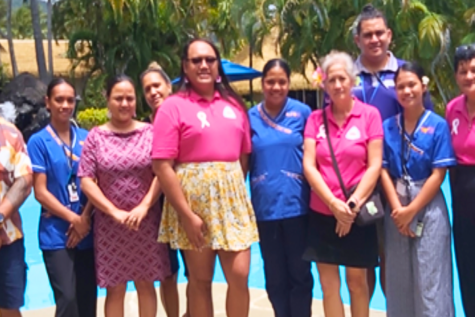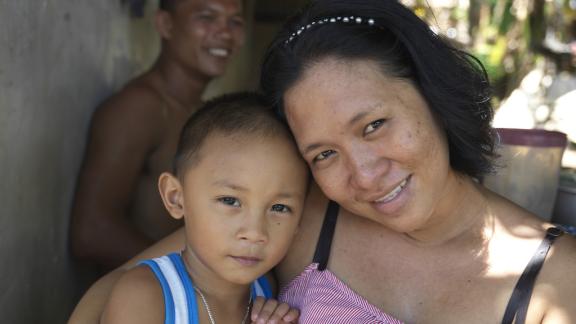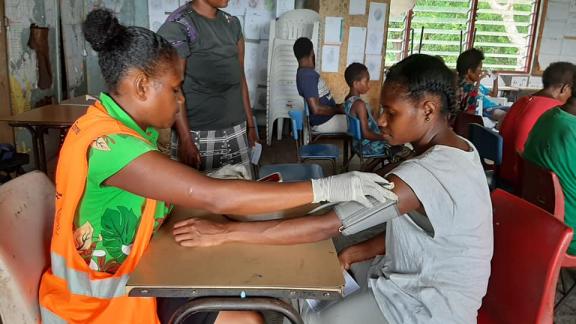Spotlight
A selection of resources from across the Federation

Cook Islands, New Zealand
Ora’anga Meitaki no te Vainetini: Cook Islands Women’s Wellbeing in the Context of Abortion
In 2022, research on abortion, including unsafe abortion, in Cook Islands was conducted by the University of New South Wales, University of the South Pacific Cook Islands Campus Te Puna Vai Mārama | Centre for Research, and Cook Islands Family Welfare Association (CIFWA). Ora’anga Meitaki no te Vainetini: Cook Islands Women’s Wellbeing in the Context of Abortion includes the lived experiences and stories of women, advocates, support persons and health workers in the Cook Islands and Aotearoa New Zealand.
Filter our resources by:

| 04 February 2016
IPPF's humanitarian response
During times of crisis sexual reproductive health services are a necessity. Access to sexual and reproductive health services, even in the midst of war or natural disaster, is a human right which does not only saves lives in the short run, but also helps build resilience amongst refugees and displaced people. The statistics of women affected in humanitarian crises are shocking. It is estimated that 26 million of the 100 million people are in need of humanitarian assistance, are women and adolescent girls of reproductive age - 500 of these women and girls die every day from complications related to pregnancy and childbirths.
| 18 November 2015
Sexual and reproductive health and rights & migration: an IPPF ESEAOR Priority
Migrants are vulnerable to exploitation and abuse. Many are poor, unskilled, or uneducated. Many have no access to social services and other protection mechanisms compared to normal populations. Many have little or no means of livelihood.

| 17 June 2015
Financial Statement 2014
Financial Statements for 2014 Executive Summary IPPF’s total income has fallen by US$10.0 million from US$136.1 million to US$126.1 million. This reduction is due to a fall in unrestricted government income of US$2.2 million, a reduction of restricted government income of US$8.0 million and reduced donations in kind of US$2.2 million offset by an increase in restricted grants from multilaterals of US$2.9 million. The total decrease is equally split between unrestricted and restricted income at US$5 million each. With the exception of Australia, all government donors have held level or increased their unrestricted funding to IPPF in the donor currency. However the strengthening of the US dollar has had a significant impact, effectively reducing US dollar unrestricted income by approximately 9% on a like for like basis compared to 2013. Total expenditure has risen from US$132.8 million to US$137.6 million. Unrestricted expenditure has risen from US$76.8 million to US$84.3 million while restricted expenditure has fallen from US$56.0 million to US$53.3 million. The increase in unrestricted expenditure is driven by an exchange loss (US$3.6 million) and the use of designated funds to provide support in a number of areas: support in South Asia for system strengthening (US$1.7 million); provision of support to Member Associations (MAs) to scale up services (US$0.9 million); development of the new strategic framework (US$0.4 million); international advocacy and supporting IPPF Vision 2020 campaign to place sexual reproductive health (SRH) and rights at the centre of the sustainable development agenda (US$0.8 million); and support for resource mobilization at a regional and central level (US$1.4 million). Restricted expenditure levels are driven by the timing of donor funded programmes, which vary on a year-byyear basis. This has resulted in an unrestricted deficit of US$4.6 million before other unrecognized gains and losses and a restricted deficit of US$6.9 million, to generate a total operating deficit of US$11.5 million. After taking into account actuarial losses on the defined benefit pension scheme the resulting net movement in funds was a reduction of US$15.1 million. The level of unrestricted income received was as forecast in the 2014 budget and the expenditure in excess of income levels was funded using approved designated funds (US$6.4 million). This resulted in a small increase in general reserves to US$24.0 million and a fall in designated reserves to US$85.9 million. "The unrestricted funding that our major donors have provided to us over the long term has enabled the Federation’s Member Associations to build sustainable programmes of delivery and advocacy impacting positively the lives of millions of people."

| 06 May 2015
IPPF's Strategic Framework: 2016-2022
Strategic Framework 2016–2022 is a bold and aspirational vision of what the International Planned Parenthood Federation (IPPF) plans to achieve, and how we will achieve it, over the next seven years. It is the culmination of an extensive global consultative process involving Member Associations, partners and donors, and was approved by IPPF’s highest decision-making body, the Governing Council, in November 2014. Our strategy responds to social, political and demographic global trends. These include: the expectations and potential of the largest ever generation of young people; ongoing, significant social and economic inequalities, including discrimination against girls and women; and opposition that threatens gains in human rights. It is also guided by evaluations and analyses of our work – strengths, weaknesses, capacities, resources and networks. IPPF’s Strategic Framework sets the priorities that will allow the Federation to deliver impact as a sexual and reproductive health and rights (SRHR) movement over the next seven years. It will guide national Member Associations and partners in formulating their own country-specific strategies, based on their resources and tailored to serve the most marginalized groups in local contexts. It also provides focus to the Secretariat in its international influencing and in its support to Member Associations. Progress in delivering the Strategic Framework will be measured through a dashboard of global results and Member Associations will report on these indicators on an annual basis. With this essential tool, IPPF is equipped to move forward and deliver on its promises. At the helm of the sexual and reproductive health and rights movement, we will help unite the actions and achievements of sexual and reproductive health (SRH) champions around the world to realize a step change in sexual and reproductive health and rights around the world.
| 06 July 2012
Ending Unsafe Abortion in Asia
This short film examines the effects of criminalizing abortion in the region through the lens of women. Nearly half of all abortions worldwide are illegal and most illegal abortions are taking place in developing countries. Over 3 million unsafe abortions happen yearly in this region, with poor and rural women more likely to experience severe complications as they depend on unsafe methods and providers.
| 06 December 2011









